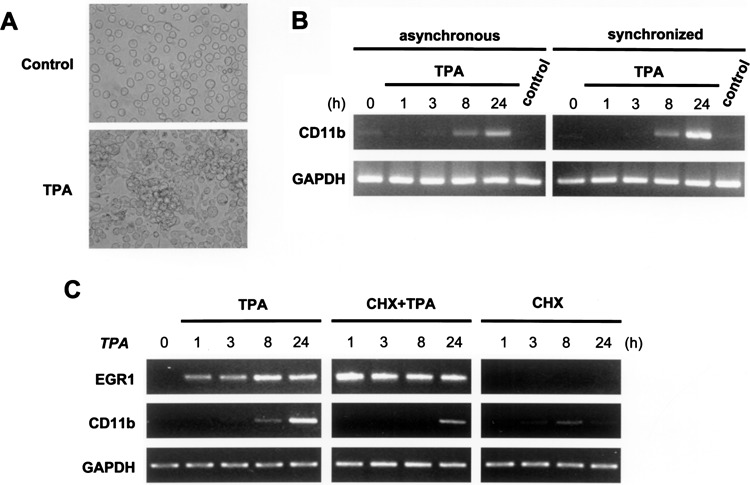Figure 2.

TPA induction of cellular differentiation and the expression of marker genes in HL-60 cells. (A) TPA induced macrophage-like differentiation in HL-60 cells. Morphological changes (aggregation and adherence) were observed in cells treated with TPA (32 nM) for 2 days. (B) The expression of the differentiation marker, CD11b, was increased by TPA treatment and was seen after 8 h of TPA treatment (left panel). Upregulation of CD11b transcription was not affected by nocodazole synchronization (right panel). The kinetic of CD11b transcription was analyzed by RT-PCR after the indicated time (0–24 h) of TPA treatment; control cells were treated with DMSO alone. In the right panel, the cells were synchronized with nocodazole (0.05 μg/ml) for 24 h and then washed off before TPA stimulation. (C) The early and late TPA-responsive genes can be distinguished using the protein synthesis inhibitor cycloheximide. TPA-induced upregulation of the late responsive gene, CD11b, is suppressed by cycloheximide, whereas that of the early responsive gene, EGR1, is not. In this experiment, cells were treated with cycloheximide (CHX, 10 μg/ml) for 30 min, then for 1 h with cycloheximide and TPA.
